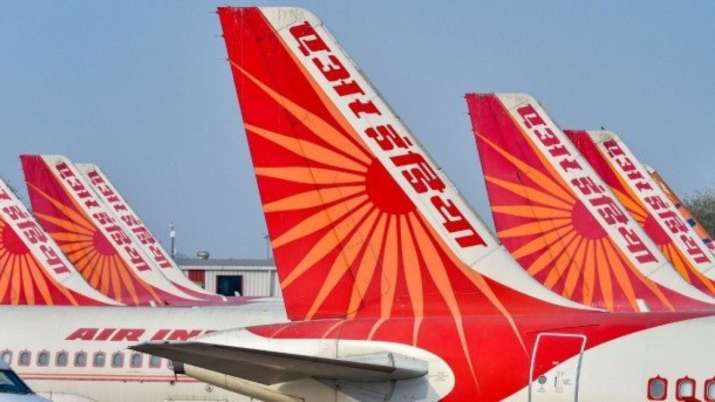
Tata will not get to retain non-core assets such as Air India’s Vasant Vihar Housing Colony, Nariman Point, Air India Building in Mumbai and Air India Building in New Delhi.
The government on Monday signed a share purchase agreement with Tata Sons for the sale of national carrier Air India for Rs 18,000 crore.
Earlier this month, the government accepted a proposal by Salt-to-Software group’s holding company Tales Pvt Ltd to pay Rs 2,700 crore in cash and take over Rs 15,300 crore of the airline’s debt.
After that, a letter of intent (LOI) was issued to the Tata group on October 11, confirming the government’s willingness to sell its 100 per cent stake in the airline.
Tuhin Kanta Pandey, Secretary, Department of Investment and Public Asset Management (DIPAM), tweeted, “Government today signed Share Purchase Agreement with Tata Sons for strategic disinvestment of Air India.”
Air India’s Director – Finance Vinod Hejmadi, Civil Aviation Ministry’s Joint Secretary Satyendra Mishra and Tata Group’s Supraprakash Mukhopadhyay signed the Share Purchase Agreement (SPA).
Now, various regulatory clearances including the Competition Commission of India (CCI) will have to be taken by Tata Sons before the actual handover of the airline by December-end.
The government is selling its 50 per cent stake in ground-handling company AISATS along with its 100 per cent ownership of Air India and Air India Express.
Tata surpassed the Rs 15,100 crore offer by SpiceJet promoter Ajay Singh-led consortium and the Rs 12,906 crore reserve price set by the government for the sale of the loss-making carrier.
As on August 31, Air India had a total debt of Rs 61,562 crore. As part of the deal, 75 per cent of this loan, or Rs 46,262 crore, will be transferred to AIAHL, a special purpose vehicle, before handing over the loss-making airline to the Tata Group.
Tata will not get to retain non-core assets such as Air India’s Vasant Vihar Housing Colony, Nariman Point, Air India Building in Mumbai and Air India Building in New Delhi.
Of the 141 Air India aircraft received by Tata, 42 are leased aircraft while the remaining 99 are owned.
Tata will also handle the capitalized lease liability on account of operating leases of Rs 9,185 crore. In addition, some of these 141 aircraft have been grounded due to maintenance issues. In addition, there is an obsolescence factor as many of these aircraft are not fuel-efficient.
The government, however, owes Air India Assets Holding Limited (AIAHL) about Rs 16,000 crore of current liabilities in excess of current and non-current assets, such as fuel bills and other pending dues, which are due to Air India’s suppliers. will transfer. .
While this will be the first privatization since 2003–04, Air India will be the third airline brand in the Tata stable – it has a majority stake in Vistara, a joint venture with AirAsia India and Singapore Airlines Ltd.
Air India will give it access as well as control of 4,400 domestic and 1,800 international landing and parking slots at domestic airports, apart from 117 wide-body and narrow-body aircraft and 24 other narrow-body aircraft of Air India Express Limited. 900 slots at airports abroad such as London’s Heathrow.
Air India started making losses every year since its merger with Indian Airlines in 2007-08. The Turnaround Plan (TAP), as well as the Financial Restructuring Plan (FRP) for Air India were approved by the previous UPA government in 2012.
However, the TAP did not work and Air India was running at a loss, with the government giving Rs 20 crore per day to keep the airline afloat.
Over Rs 1.10 lakh crore has been invested in the form of cash support and loan guarantees to keep the loss-making airline afloat in the past decade.
“At present Air India is incurring a loss of Rs 20 crore per day. So those losses after handover will not pass on to the taxpayers. The question is when you have huge debt and your equity value is deep at (-) 32,000 crores is negative…”
Pandey had earlier said, “So unless you rebuild the balance sheet, the only option would have been to really wind up the company. Because there was no other option but to run such a company.”
Read also | Decision on Air India will give new energy to aviation sector: PM Modi
Read also | Purchase of costly aircraft parts will be done after approval of senior official: Air India
.